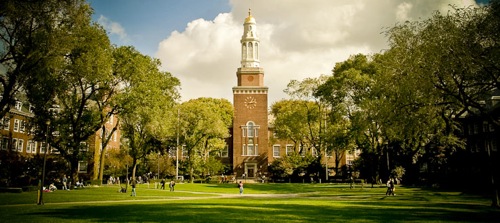
In 2008, I wrote an essay called “Why I Hate MFA Programs, or an Argument to Prove That the Abolishing of the MFA Program in American Universities May, as Things Now Stand, Be Attended with Very Few Inconveniences.” The main point of this cheerful, theatrical, cranky, Swiftian manifesto was simple: I was leaving academia after a fifteen-year stint of adjunct teaching because I felt I could no longer contribute to a system that was in some way harmful to the souls (and pocketbooks) of young writers. The piece was intended as a gift to a friend, a talented young poet who had been through the wringer applying to MFA programs without much luck. The essay subsequently found a larger audience in Poets on Teaching: A Sourcebook, edited by Joshua Marie Wilkinson. It was also recently visited, mulled over, and counter-pointed by my colleague Juliana Spahr in an Argotist Online interview.
But next month I’ll be returning to a teaching position in Brooklyn College’s MFA, again to contribute to the system I’ve railed against. Truth be told, my attitude hasn’t changed much since I penned “Why I Hate MFA Programs.” If anything, my opposition to state- and corporate-sponsored education has increased, mostly because there is now a child in my household and for a variety of reasons I can’t imagine sending her to school. But as our family fine-tunes our decision to bypass the education system and engage in the adventure of “unschooling” our daughter, I return to teaching. Where does this leave me as the author of that manifesto? One of the things I appreciate about Juliana’s response is her clarity in seeing the bigger picture. Why single out MFA programs as a fundamental evil? How are class and economic issues a part of the higher education system as a whole? And is teaching in a MFA program worse than eating meat? (I want to dig myself out of that question: I get my chickens from friendly Amish farmers; cut me some slack!)
When I think about poets and their tenures in schools as students and teachers, I’m drawn back to Robert Duncan’s 1963 lecture “A Life In Poetry,” a transcript of which is online courtesy W Magazine. He talks about enrolling in the Medieval Studies Department at Berkeley in the 1940s to take classes with historian Ernst Kantorowicz. Duncan had no interest in a degree or in a career as a historian, but he did have a great passion for medieval history: “This is almost impossible to explain to a university. . . .They feel about, as if you went to apply to a bank and said, ‘I like banks ‘cause I want to take money home.’ They try patiently to explain to you, 'That’s not what we’re doing,’ and ‘I know we’ve got lots of money here...and later you may get some of it when you--when you learn how to do it kosher.’”
I'll return to teaching carrying in mind the tenets of my modest proposal as well as Duncan’s love affair with Gnosis. If I have something to give as a teacher (collaborator? conspirer? facilitator?), it’s the message that a passion for poetry, plain and simple, can triumph over the banking model of education.
Isaac Jarnot (he/him) was born in Buffalo, New York, and educated at the University at Buffalo. He is...
Read Full Biography

